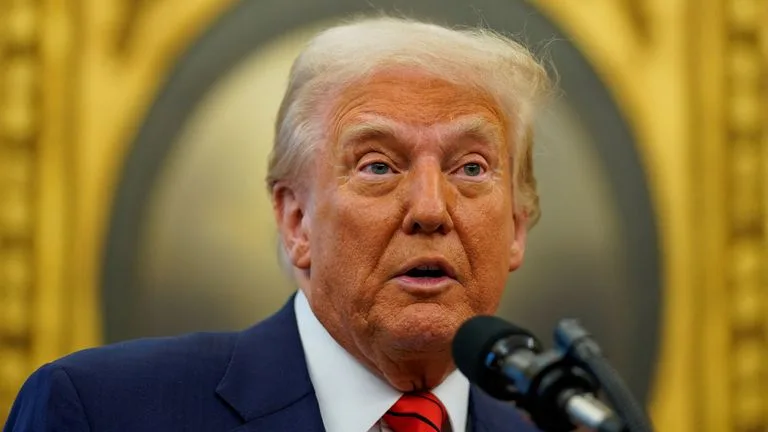U.S. President Donald Trump secured a significant political win on Thursday as Congress narrowly passed his flagship tax and spending bill, cementing key pillars of his second-term agenda and delivering a major boost to his anti-immigration policies.
The deeply divisive measure passed the House of Representatives 218–214, just days after clearing the Senate. It now heads to the president’s desk for signature—just in time for a July 4th Independence Day signing ceremony.
“One of the most consequential Bills ever. The USA is the ‘HOTTEST’ Country in the World, by far!!!” Trump wrote on social media, celebrating the hard-fought victory.
The bill—nicknamed the “One Big Beautiful Bill” by Trump—marks a dramatic reshaping of the American fiscal and social landscape. It features massive tax cuts, increased military and border security spending, and funding for mass deportations of undocumented migrants. At the same time, it enacts deep cuts to welfare programs, including the most significant reductions to Medicaid since its creation in the 1960s.
Republican divide, democratic resistance
The razor-thin vote came after House Speaker Mike Johnson worked through the night to rally skeptical Republicans, some of whom had raised alarm over the bill’s cost—an estimated $3.4 trillion addition to the national debt over a decade.
“Today we are laying a key cornerstone of America’s new Golden Age,” Johnson said after the vote.
But the measure remains deeply unpopular with Democrats and some moderate Republicans. Opposition centers on projections that up to 17 million Americans could lose health coverage, and that rural hospitals could face widespread closures due to Medicaid cuts.
Fiscal conservatives also expressed frustration that the legislation falls short of expected savings, despite painful reductions in federal assistance programs.
House Democratic Leader Hakeem Jeffries launched a marathon nearly nine-hour floor speech ahead of the vote, blasting the bill as a “reckless Republican budget” and warning of its consequences for working Americans.
“This one big, ugly bill — this disgusting abomination — is not about improving the quality of life of the American people,” Jeffries said.
The bill’s passage underscores Trump’s firm grip on the Republican Party, even as some lawmakers worried about the political fallout ahead of the 2026 midterms.
In recent weeks, Trump personally lobbied lawmakers, held closed-door meetings, and reportedly made direct calls to fence-sitting Republicans, pressuring them to support the 869-page bill or risk political isolation.
The legislation fulfills a slate of Trump campaign promises, including $4.5 trillion in extended tax cuts, a major crackdown on illegal immigration and expanded deportation powers, and increased military spending and new funding for border enforcement.
To help pay for it, the bill ends federal subsidies for clean energy and electric vehicles, triggering a public spat between Trump and Elon Musk, a former ally turned vocal critic.
Democrats hope backlash over the bill will galvanize voters and help flip the House in 2026. Party strategists are already pointing to polling data that suggests the public opposes the bill’s redistribution of wealth, which critics say shifts resources from the poorest Americans to the wealthiest.
Meanwhile, Trump is riding a wave of momentum. The bill’s passage follows a recent Supreme Court ruling limiting judicial power to block executive actions and U.S. airstrikes in the Middle East that contributed to a ceasefire between Israel and Iran.
As Trump prepares to sign the bill into law on the Fourth of July, the measure may prove a defining achievement of his second term—or a political flashpoint for years to come.
AFP


